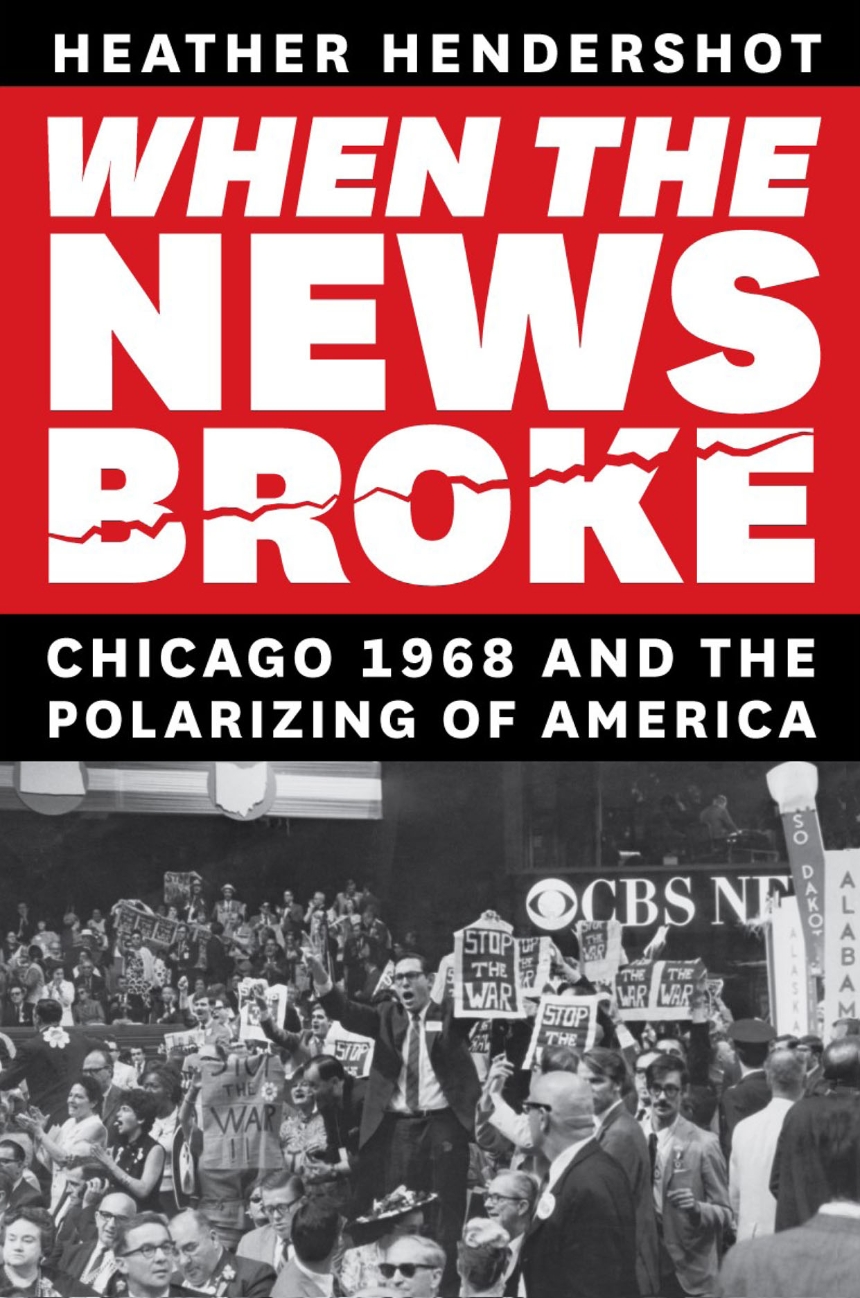When the News Broke
Chicago 1968 and the Polarizing of America
9780226833286
9780226768526
9780226768663
When the News Broke
Chicago 1968 and the Polarizing of America
A riveting, blow-by-blow account of how the network broadcasts of the 1968 Democratic convention shattered faith in American media.
“The whole world is watching!” cried protestors at the 1968 Democratic convention as Chicago police beat them in the streets. When some of that violence was then aired on network television, another kind of hell broke loose. Some viewers were stunned and outraged; others thought the protestors deserved what they got. No one—least of all Chicago mayor Richard J. Daley—was happy with how the networks handled it.
In When the News Broke, Heather Hendershot revisits TV coverage of those four chaotic days in 1968—not only the violence in the streets but also the tumultuous convention itself, where Black citizens and others forcefully challenged southern delegations that had excluded them, anti-Vietnam delegates sought to change the party’s policy on the war, and journalists and delegates alike were bullied by both Daley’s security forces and party leaders. Ultimately, Hendershot reveals the convention as a pivotal moment in American political history, when a distorted notion of “liberal media bias” became mainstreamed and nationalized.
At the same time, she celebrates the values of the network news professionals who strived for fairness and accuracy. Despite their efforts, however, Chicago proved to be a turning point in the public’s trust in national news sources. Since those critical days, the political Right in the United States has amplified distrust of TV news, to the point where even the truest and most clearly documented stories can be deemed “fake.” As Hendershot demonstrates, it doesn’t matter whether the “whole world is watching” if people don’t believe what they see.
“The whole world is watching!” cried protestors at the 1968 Democratic convention as Chicago police beat them in the streets. When some of that violence was then aired on network television, another kind of hell broke loose. Some viewers were stunned and outraged; others thought the protestors deserved what they got. No one—least of all Chicago mayor Richard J. Daley—was happy with how the networks handled it.
In When the News Broke, Heather Hendershot revisits TV coverage of those four chaotic days in 1968—not only the violence in the streets but also the tumultuous convention itself, where Black citizens and others forcefully challenged southern delegations that had excluded them, anti-Vietnam delegates sought to change the party’s policy on the war, and journalists and delegates alike were bullied by both Daley’s security forces and party leaders. Ultimately, Hendershot reveals the convention as a pivotal moment in American political history, when a distorted notion of “liberal media bias” became mainstreamed and nationalized.
At the same time, she celebrates the values of the network news professionals who strived for fairness and accuracy. Despite their efforts, however, Chicago proved to be a turning point in the public’s trust in national news sources. Since those critical days, the political Right in the United States has amplified distrust of TV news, to the point where even the truest and most clearly documented stories can be deemed “fake.” As Hendershot demonstrates, it doesn’t matter whether the “whole world is watching” if people don’t believe what they see.
An audiobook version is available.
400 pages | 32 halftones | 6 x 9 | © 2022
History: American History
Reviews
Table of Contents
Introduction Breaking the News, Chicago Style
Chapter One The Storm before the Storm
Chapter Two Day One: “If the Democratic Party can’t be democratic, what hope is there for democracy?”
Chapter Three Day Two: “We filibustered with Tweedle-dee and Tweedle-dum matters until the American people had gone to bed.”
Chapter Four Day Three: “You do what’s right, you don’t have to give a worry about the television medium.”
Chapter Five Day Four: “Maybe this is a kiss-and-make-up session, but it’s not really intended quite that way, Mayor Daley.”
Chapter Six The Storm after the Storm
Conclusion From Biased News to Fake News
Acknowledgments
Notes
Index
Chapter One The Storm before the Storm
Chapter Two Day One: “If the Democratic Party can’t be democratic, what hope is there for democracy?”
Chapter Three Day Two: “We filibustered with Tweedle-dee and Tweedle-dum matters until the American people had gone to bed.”
Chapter Four Day Three: “You do what’s right, you don’t have to give a worry about the television medium.”
Chapter Five Day Four: “Maybe this is a kiss-and-make-up session, but it’s not really intended quite that way, Mayor Daley.”
Chapter Six The Storm after the Storm
Conclusion From Biased News to Fake News
Acknowledgments
Notes
Index
